Photo: Aldara Zarraoa/Redferns
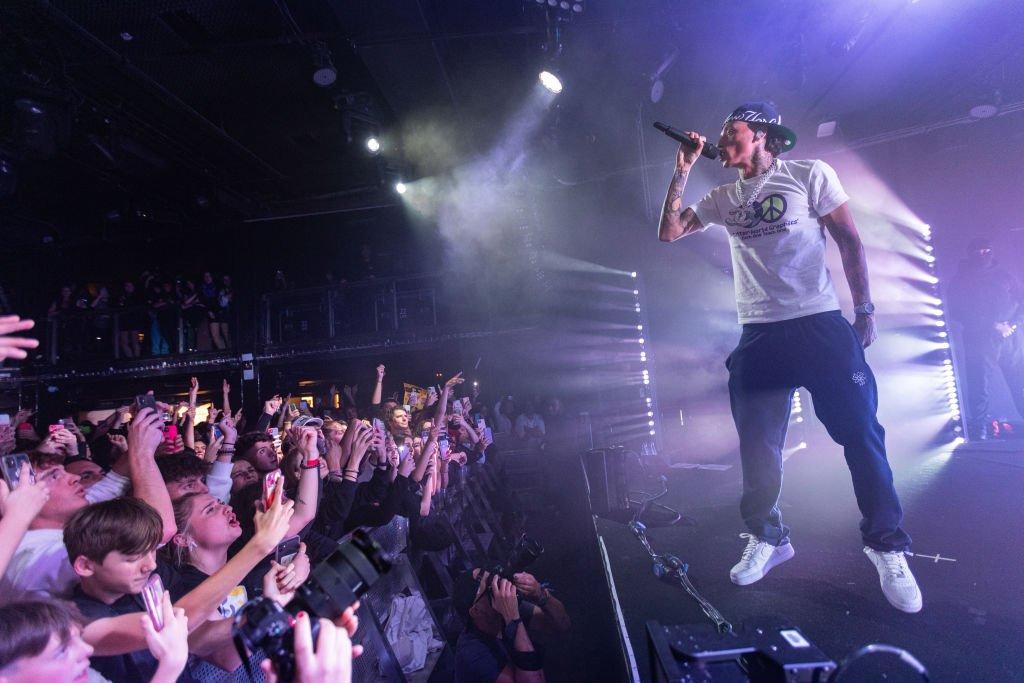
news
5 International Hip-Hop Scenes To Watch Now
Acts around the globe are shifting away from imitating American artists, creating an audible international shift toward sounds that are truer to location. Read on for five countries with distinct hip-hop scenes worth checking out.
Fifty years since the recognized beginning of hip-hop culture in the United States, its beats, rhymes and life have been inspiring artists and doing serious business around the world. These days, though, there’s an audible international shift away from imitating American acts and producing sounds that are truer to location.
"Overall, we’re definitely seeing the decline of the dominance of rap music on a global scale," notes Nima Etminan, COO of Empire. Headquartered in San Francisco, Empire is included among Billboard’s 2023 International Power Players and has offices in New York, London, South Africa and Nigeria. An experienced A&R executive, Etminan is originally from Germany and frequently works from each base to scout and sign talent.
What is working, Etminan has noticed, are emergent international styles that may count rap music and hip-hop culture as ingredients or influences. Artists around the globe are breaking new sonic ground, whether it’s Puerto Rico’s Bad Bunny rapping and singing, or the hip-hop appeal of the corridos by Mexico’s Peso Pluma.
"I think that the essence of African American culture when it comes to talking and dressing and stuff is definitely still there, but it’s just less because [America has] less global influence," he says. " Now everybody kind of has their own local scenes that are bigger. So the American stuff still plays into it, but just on a much smaller scale because they have their own heroes and their own superstars who are big that they are looking up to."
With all that in mind, GRAMMY.com asked Etminan and other global music minds to recommend international rap scenes that are worth watching now.
Brazil
In November, Brazilian hip-hop artists made a big impression at the 2023 Latin GRAMMYs. Planet Hemp and Criolo were the first to win the inaugural award for Best Portuguese-Language Urban Performance with their song "Distopia." They were nominated alongside three other Brazilian rap acts worth watching: Luccas Carlos, Dallas and Filipe Ret.
Empire, which is both a record label and distributor, just hired its first employee in Brazil. The company has good reason to watch and invest in this region.
"I think Brazil is one of the fastest rising areas," says Etminan. "I think as far as their own sound and culture that’s really big but hasn’t exploded outside of that yet, and hasn’t had mainstream success yet, it’s probably Brazil."
Read more: A Timeline Of Brazilian Hip-Hop: From The Ruas To The Red Carpet
France
French rap music may not be on the radar of the average American fan, but France is the second largest market in the world for hip-hop — behind only the United States.
"Take a look at the country's Top Spotify lists and it's strongly dominated by domestic artists in the genre who come from Paris, Marseille and from various regions across the country," notes Alexandra Greenberg, the U.S. consultant for CNM (Centre national de la musique), France’s national music office. "The country also has Les Flammes, an international awards show celebrating rap going into its second year this coming April."
Paris-based hip-hop journalist and author Epée Hervé Dingong suggests becoming acquainted with the likes of Ninho, an MC of Congolese descent influenced by American Southern rappers, who recently collaborated with Lil Baby. Dingong also pointed to Booba, who has had three NO. 1 albums and eight other Top 10 releases in France since his 2002 debut.
"Booba is not new," says Dingong, who is working on a book chronicling the history of the hip-hop mixtape, "but he is still the king."
Nigeria
The world’s embrace of Afrobeats originated with Nigerian artist Fela Kuti, who was likened to be the James Brown of Africa. Current Nigerian superstars who are poised to eclipse that success internationally, like Burna Boy and Olamide, have grown up under the influence of the Kuti family (including Fela’s recording artist sons, Femi Kuti and Seun Kuti) and the allure of American rap.
Ahead of the 2024 GRAMMYs, the Recording Academy introduced a new category of Best African Music Performance, reflecting the continent’s current breakthroughs in the North American music business. And a remix of "Sittin’ on Top of the World" by Burna Boy featuring 21 Savage is one of the nominees for Best Melodic Rap Performance in 2024. Fellow nominees in the category are "Attention" by Doja Cat, "Spin Bout U" from Drake & 21 Savage, "All My Life" by Lil Durk feat. J. Cole, and SZA's "Low."
Though these artists are beloved around the world, the worsening economic climate in Nigeria has made it challenging for them to succeed at home, explains Etminan.
"The inflation in Nigeria was so crazy this year," he says, "and the Nigerian currency lost so much of its value, so a lot of the money these artists were making was devalued at the same time. So that’s stuff that plays into [their ability to work at home and] that’s really tough. And that’s outside of anyone’s control, you know?"
South Africa
A&R executives like Etminan are still heavily focused on the talent and potential in South Africa, though the man who was arguably the biggest star in the South African scene with the most international appeal lost his life in 2023. AKA, an MC who was the top-selling South African hip-hop artist of all time, was shot and killed in Durban in February when his career was still on the rise. He was 35.
Presently, South Africa gets the most attention globally for amapiano, which takes influence more from house music and the more local kwaito music from the Nineties, but there is a growing cooperation and collaboration with the South African rap world. Like most specifically rap scenes, South Africa’s is male-dominated, but a notable exception is Nadia Nakai, an Artist Of The Decade nominee at the South African Hip-Hop Awards and reality star in the Netflix series Young, Famous & African. Nakai and her contemporaries reflect an aspirational lifestyle in their music.
England
"The UK market for a long time was very tough," says Etminan, adding that the market is small, saturated, and generally concentrated around London. "Especially when it comes to hip-hop, a huge percentage of the Black population in the UK is centered around London and once you leave London it’s very white."
Hip-hop with an English accent may not have had as much success catching on internationally as other UK-bred styles like drum & bass and grime have, but a current set of stars are demanding the world’s attention.
"I think Central Cee is probably a perfect example of what can happen," Etminan adds. "Everybody loves Central Cee and I don’t know if part of it is his look — he’s very racially ambiguous, he’s good looking, girls love him. He makes music that obviously has a UK accent and stuff like that, but it’s very adaptable and catchy. I feel like Central Cee is probably the one that I hear played the most from people that just listen to regular American rap music [in England]."
Central Cee won two 2022 MOBO Awards for Best Male Act and Video Of The Year for his song "Doja," which was directed by Cole Bennett, the popular Chicago video director from Lyrical Lemonade. He celebrated his 25th birthday in 2023 with the release of Split Decision, a joint project with Mercury Prize-winning English rapper Dave, also 25 and a still-rising star who appeared on the UK series "Top Boy" (which became a US hit for Netflix). Cee is also bridging countries with collaborations such as "Eurovision," a song and video featuring rappers and producers from France, Spain, Italy and across the United Kingdom.
Luckily, YouTube offers a free passport to experiencing the creativity from these scenes and artists as well as music from all across the planet. A true benefit of the streaming age is that hip-hop fans of any age who appreciate originality, flow and bumping beats can learn about how an American-bred art form has inspired the world.
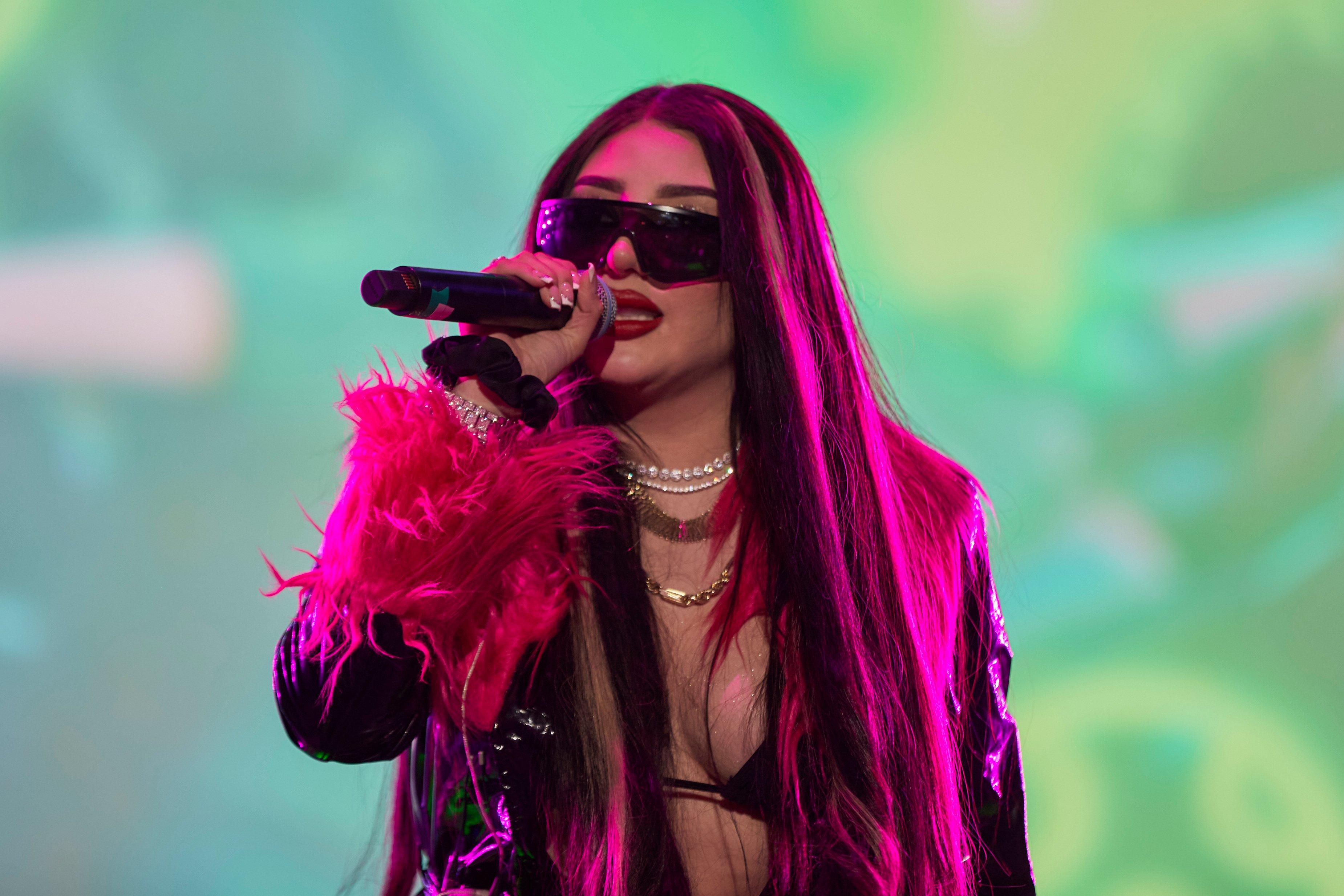
Photo: Jaime Nogales
list
7 Artists Bringing Reggaeton Mexa To The World: El Malilla, Bellakath & More
Pulling from the genre's underground roots in Puerto Rico, these fast-rising reggaeton Mexa artists infuse their own culture and grit into a globally-appealing sound.
Música Mexicana isn't the only sound of Mexico that's blowing up; the country's artists are now starting to make their mark in reggaeton. Imbued with the essence, swagger, and lingo of Mexico, reggaeton Mexa is the next big Latin sound that's going global.
Originating in the Caribbean, reggaeton evolved from Panama’s reggae en español and Jamaican dancehall of the 1980s. Puerto Rican acts like DJ Playero and DJ Nelson shaped the sound of reggaeton in the island's underground scene during the '90s, while Daddy Yankee, Tego Calderón, Don Omar, and Ivy Queen pushed the genre into the mainstream at the dawn of the new millennium.
Boricua acts Tainy, Bad Bunny, and Ozuna pushed reggaeton into the next decade, though Colombia also brought about the genre's second wind. J Balvin's success solidified Medellín as a reggaeton hotbed, spawning Maluma, Karol G, and Feid as global stars.
Learn more: The Sonic And Cultural Evolution Of Reggaeton In 10 Songs
In the 2020s, Mexico is becoming the next hub for reggaeton as artists who grew up listening to the Puerto Rican OGs — as well as Mexican acts Ghetto Kids and Pablito Mix — are now putting their own stamp on the genre. In late 2022, Bellakath put a spotlight on reggaeton Mexa with her viral hit "Gatita"; the following year, Yng Lvcas took the sound to new heights with his "La Bebé" remix featuring Peso Pluma, which reached No. 11 on the Billboard Hot 100 chart.
Reggaeton Mexa pulls from the genre's underground roots in Puerto Rico, infusing its songs with Mexican culture and grit. Lyrics are full of Mexican slang that reflect life in the barrios.
"Reggaeton Mexa is reminiscent of the sounds of the '90s and 2000s from Puerto Rican DJs like Playero and Joe," El Mallila, one of the reggaeton Mexa leaders, tells GRAMMY.com. "The songs, the beats, and rhythms are more or less similar to that flow. The difference here is the Mexican jargon. Reggaeton Mexa is spicy. We play with Mexican profanities without being offensive."
The emerging genre has gained traction among the larger reggaeton community with Jowell y Randy, Maldy, and J Balvin recently featuring on their songs. Following the success of Yng Lvcas, Bellakath, and El Malilla, Mexican acts like Peso Pluma (who dedicated part of his Éxodo album to reggaeton) and pop star Kenia Os are embracing the wave. As the tide continues to rise for reggaeton Mexa, GRAMMY.com is highlighting seven of the sound's leading artists.
Yng Lvcas
Guadalajara, Jalisco native Yng Lvcas noted that no one around him could name a Mexican reggaeton artist, so he decided to fill that void.
An early encounter would make for auspicious beginnings. As he was signing a record contract with Warner early last year, Yng Lvcas crossed paths with Peso Pluma. The música Mexicana star's first foray in reggaeton was with Yng Lvcas and their global hit, a sensual remix of "La Bebé." Their collaboration became the first reggaeton song by Mexican artists to enter the Hot 100 chart.
Last October, Yng Lvcas released his album Super Estrellas to put a spotlight on more reggaeton Mexa acts. The LP included songs with El Malilla and El Bogueto. Puerto Rican OG Maldy later teamed up with Yng Lvcas for the hypnotic "Diviértete."
Bellakath
The first artist to get the global conversation started about reggaeton Mexa was Bellakath. After earning a law degree from the National Autonomous University of Mexico, the Mexico City native became a social media personality. Bellakath leveraged her following to start her music career, which exploded in late 2022 with the frisky "Gatita." The song went viral on TikTok and the music video has over 144 million views on YouTube.
In the male-dominated reggaeton Mexa scene, Bellakath is continuing to keep women on top. Last year, she released her debut album Kittyponeo with the hit "Reggaeton Champagne" featuring Dani Flow. After signing with Warner in May, Bellakath dropped "Sandunguea," which sampled the reggaeton classic "Mayor Que Yo" by Luny Tunes. On July 15, Bellakath released her second album, Sata 42, where she ventured into dembow music with artists from the Dominican Republic.
Learn more: 5 Women Essential To Reggaeton: Ivy Queen, Natti Natasha, Karol G, Ms Nina & Mariah Angeliq
El Malilla
El Malilla proudly represents the chakalones (Mexican slang for "bad boys") in reggaeton Mexa. Hailing from Valle de Chalco, El Malilla remembers his first encounter with reggaeton as a teen came from the pirated CDs that were sold at the tianguis, or open-air markets.
Now, El Malilla is bringing Mexico's version of reggaeton to the forefront. He recently released his debut album ÑEROSTARS, which includes his viral hit "B de Bellako" with Yeyo. Back in May, Puerto Rican OGs Jowell y Randy jumped on a remix of the quirky banger.
El Malilla also wants to make reggaeton Mexa more inclusive. Reggaeton has historically excluded LGBTQIA+ folks, though queer artists such as Young Miko, Villano Antillano, and La Cruz are changing that tune. On the Mexican front, El Malilla wanted to be an ally to his queer fans with the 2000-inspired "Rebote" music video, which was shot at the gay club Spartacus with Mexican drag queens.
Within his album, El Malilla is also stretching the bounds of his artistry by exploring merengue in "Coronada" and experimenting with house music in "Todo Tiene Su Final." "ÑEROSTARS is a call to all the reggaeton Mexa artists to dare themselves to make new music and try different sounds," he says. "Don’t stay in your comfort zone just making perreo."
Yeri Mua
Veracruz native Yeri Mua is keeping a high heel firmly planted on the neck of the genre, holding it down for the women in reggaeton Mexa.
Mua started out doing makeup tutorials on YouTube and later grew a massive social media following. Last year, she launched her music career on Uzielito Mix's reggaeton romp "Línea del Perreo," which has over 103 million streams on Spotify. In songs like "Chupon," Mua brings a fierce femininity to reggaeton Mexa while flipping the genre's explicit lyrics from a woman's perspective. In April, Kenia Os tapped Mua and Ghetto Kids for her reggaeton Mexa banger "Mamita Rica." With a laugh, Os told GRAMMY.com at the time, "[Mua] sounds very sexy and makes noises like meowing. It felt very great to work with her." Last month, Mua signed a record contract with Sony Music México.
El Bogueto
Alongside El Malilla, El Bogueto is one of the OGs of reggaeton Mexa. The Nezahualcóyotl native has scored a number of hits since 2021, including "Tu Favo" and "G Low Kitty," which has nearly 60 million streams on Spotify.
The title of El Bogueto's 2023 debut album Reggaetoñerito is an amalgamation of the words reggaetonero and ñero, which is Mexican slang for a person from the hood. El Bogueto has continued to rack up millions of streams with his LP, which include hits like the freaky reggaeton romp "Piripituchy" and "Dale Bogueto." In May, J Balvin gave his co-sign to El Bogueto and the reggaeton Mexa scene when he jumped on an all-star remix of "G Low Kitty."
Yeyo
Among the artists on this list, Yeyo is the freshest one on the reggaeton Mexa scene, but he's fast becoming one of the genre's brightest stars and the go-to artist for a hit collaboration. The Zacatepec, Morelos native is a protege of Ghetto Kids' Luis Díaz, who also serves as his manager.
Yeyo's playful and infectious flow as a Mexican reggaetonero has translated into million of streams in songs like "B de Bellako" with El Malilla and "Mami Chakalosa" alongside Bellakath. He has also flexed a romantic side to his distinct voice in Ghetto Kids' recent hit "En El Ghetto #5 (La Discoteca)." Yeyo has also shined on the electronica-leaning reggaeton of "Maldad" and the sensual "Tentación."
Uzielito Mix
Many of the songs mentioned in this list wouldn't have been possible without Uzielito Mix. Following in the footsteps of Ghetto Kids and Pablito Mix, the Mexico City-based producer has become the backbone of the sound of reggaeton Mexa. Uzielito Mix produced Yeri Mua's hits like "Línea del Perreo" and "Brattiputy." He also co-produced El Bogueto and El Mallila's "G Low Kitty" with DJ Rockwell, which J Balvin later hopped on.
In his stellar collaborations, Uzielito Mix is known for uniting many of the reggaeton Mexa stars. He continues to push the sound of the genre into the future like in the spooky "Espantan" remix with El Bogueto, Alnz G, Dani Flow, and Tensec. In 2022, Bad Bunny tapped Uzielito Mix to open his World's Hottest Tour stops in Mexico City.
The Latest News About Latin Music
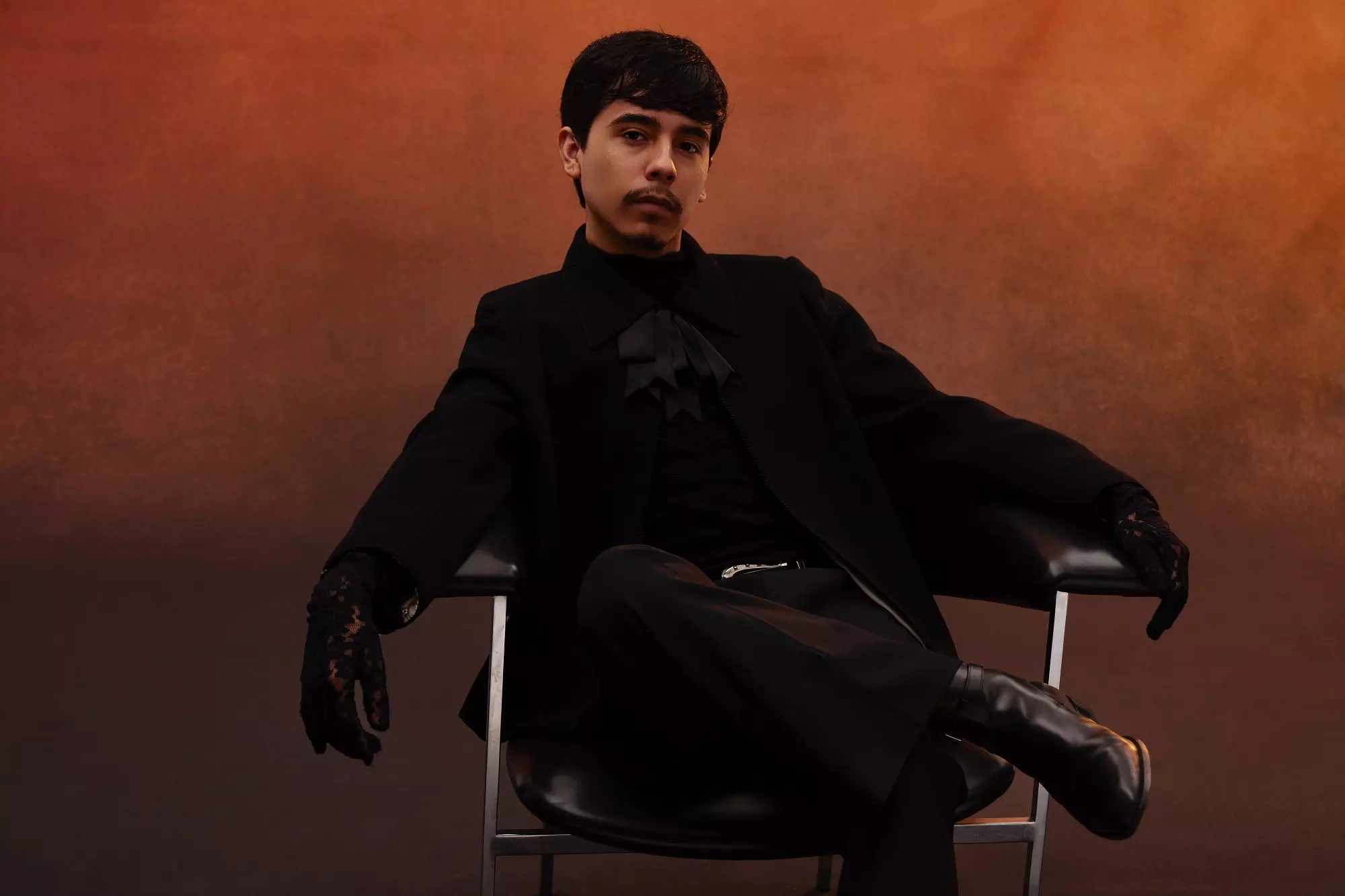
On 'Mirada,' Ivan Cornejo Redefines The Sound Of Sad Sierreño And Helps Fans Heal Through Music
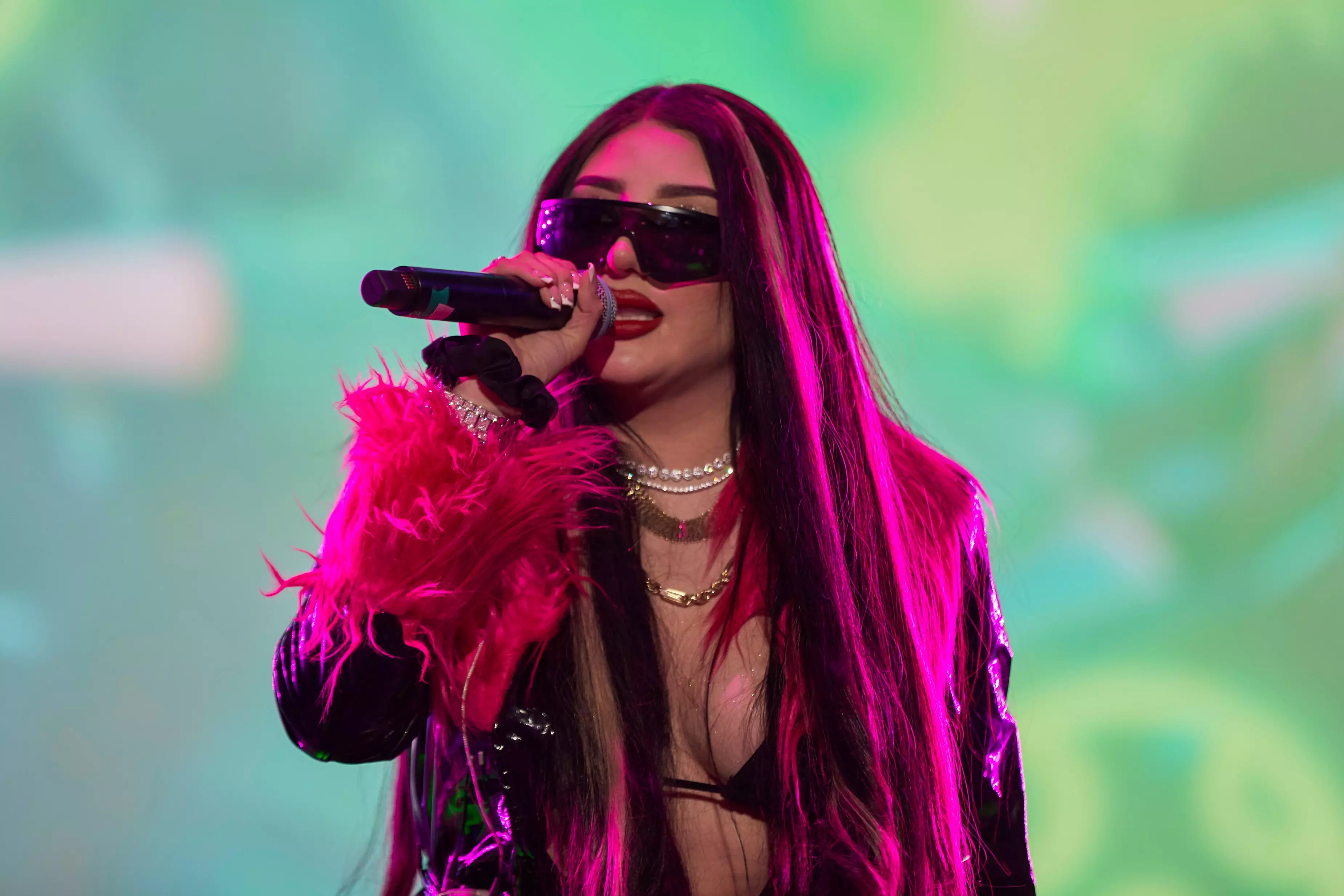
7 Artists Bringing Reggaeton Mexa To The World: El Malilla, Bellakath & More
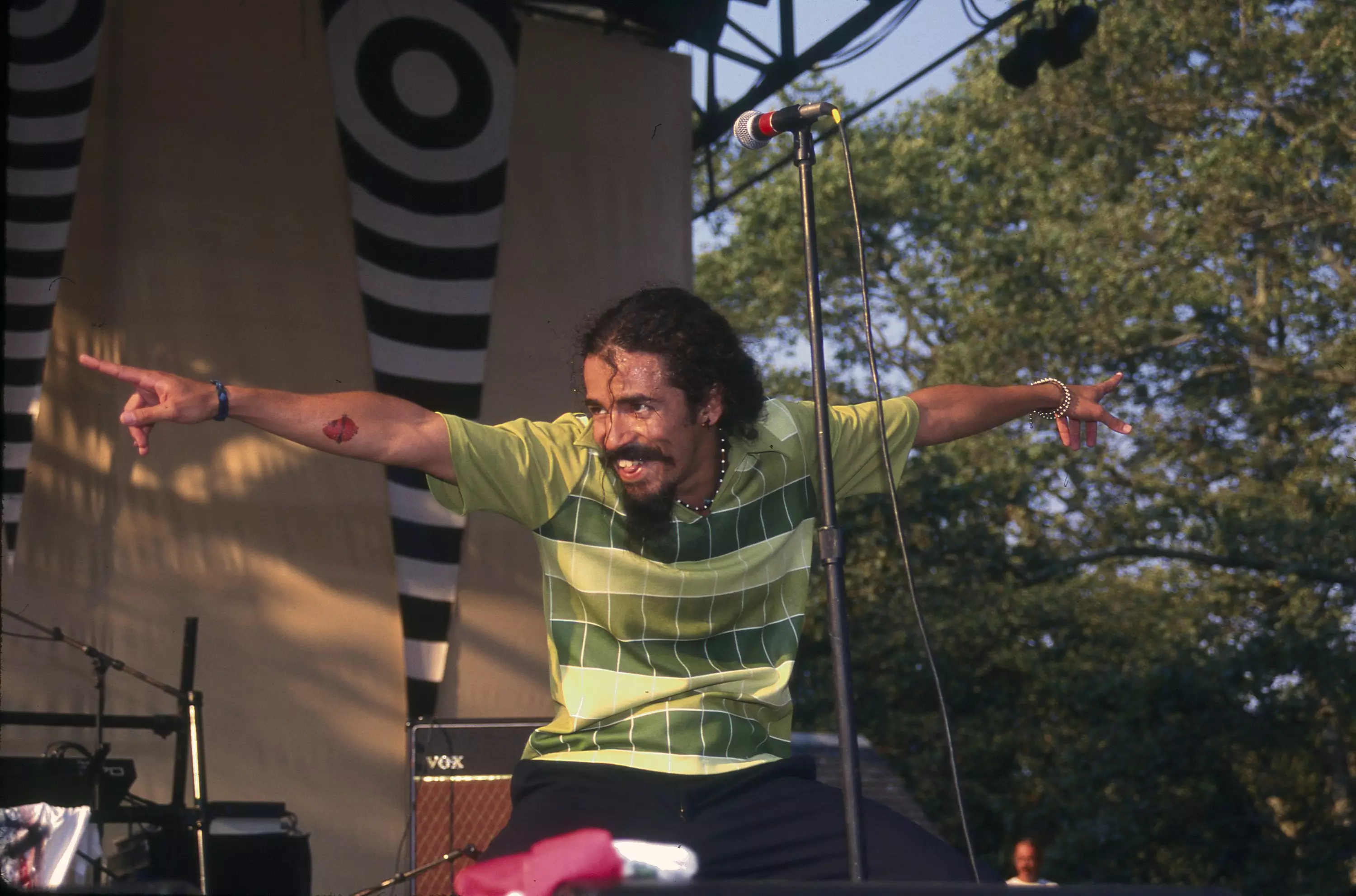
Revisiting 'Re': How Café Tacvba’s 1994 Masterpiece Changed Mexican Music Forever
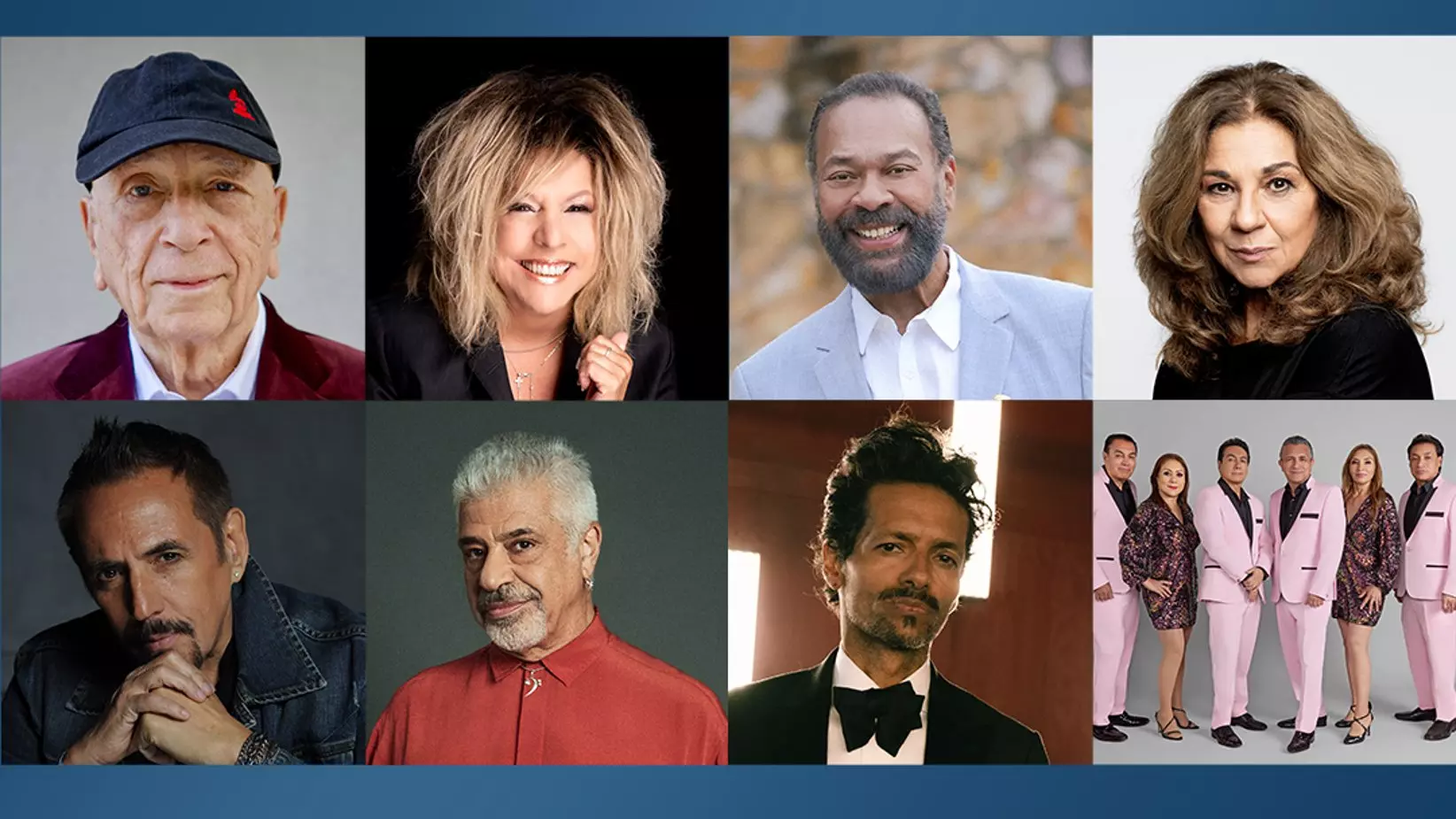
The Latin Recording Academy Announces 2024 Special Awards Recipients: Los Ángeles Azules, Draco Rosa, Albita, Lolita Flores & More
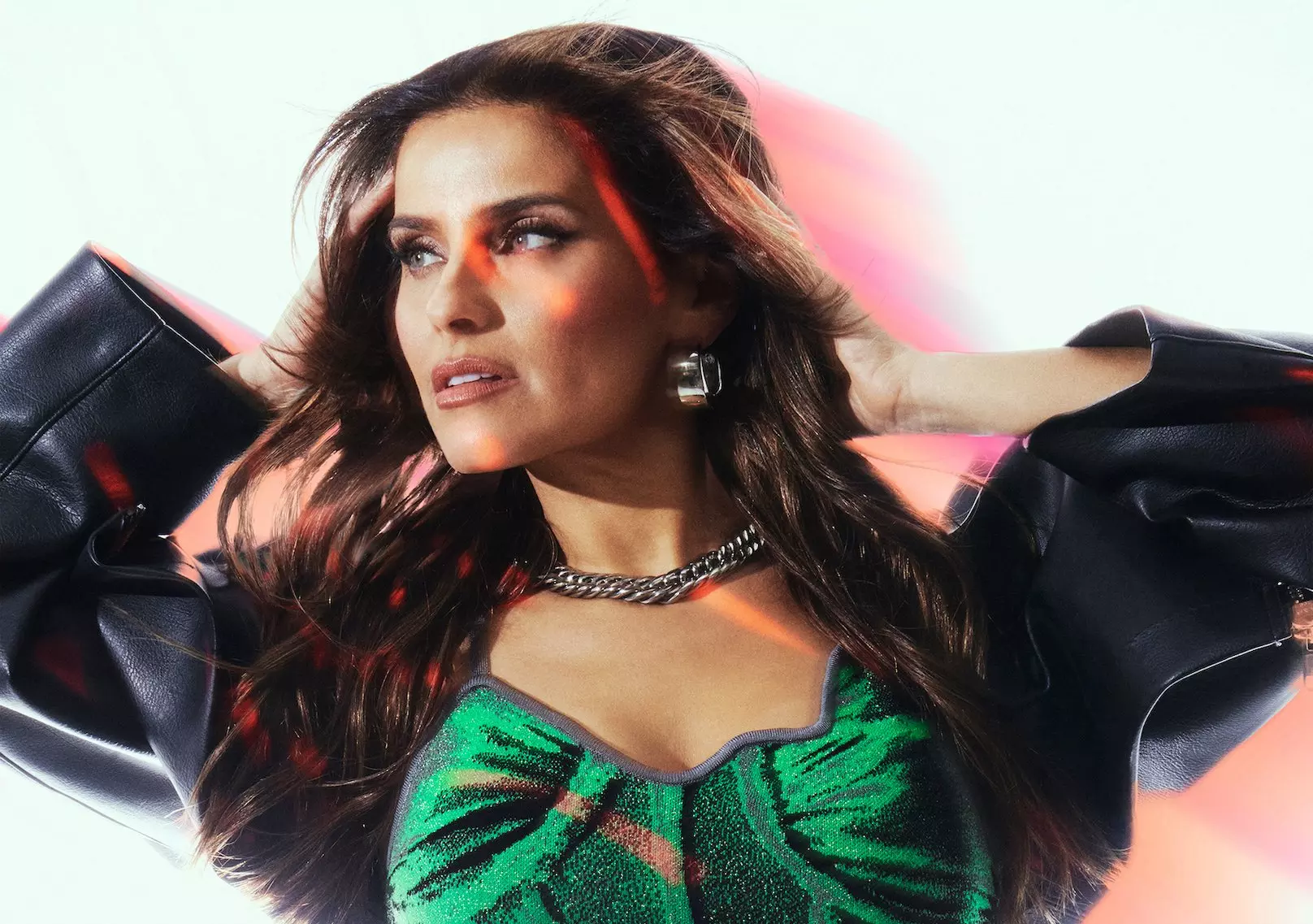
Nelly Furtado On How Remix Culture, ADHD & Gen Z Inspired Her New Album '7'
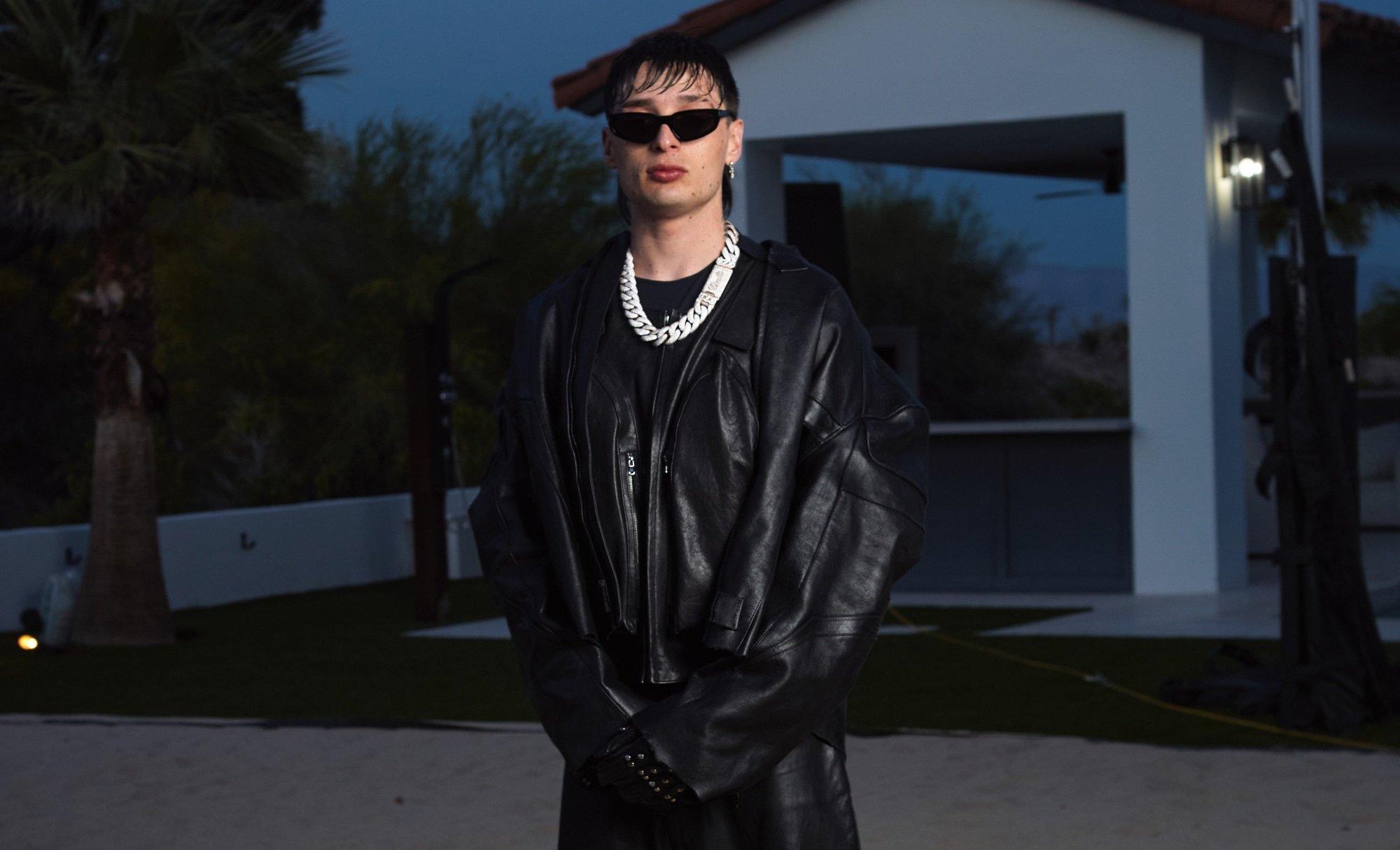
Photo: Arenovski
feature
Peso Pluma's Road To 'ÉXODO': The GRAMMY Winner Navigates The Consequences Of Global Stardom On New Album
"Fans really get to see the other side of the coin; there are two sides to me. It's darker, rawer," Peso Pluma says of his latest album 'ÉXODO'
Peso Pluma marked his musical destiny with a Tupac tribute tattoo in the center of his clavicle: "All Eyez On Me."
The Mexican artist, born Hassan Emilio Kabande Laija, doesn't remember exactly what year he inked his chest. He knows it was well before his debut in music. Those four words reflected Peso's irrefutable confidence that the world's eyes would eventually be on him.
The world's eyes are indeed on Peso Pluma. In less than two years, the singer achieved global fame by singing corridos tumbados, traversing a path never before trodden by a música Mexicana artist.
At 25, Peso Pluma is at the forefront of a new generation of música Mexicana artists that have successfully modernized traditional Mexican rhythms, such as corridos, by infusing them with elements from urban music and a hip-hop aesthetic. The weight of representing an entire genre and a country could be great for some. But pressure doesn't affect Peso Pluma; on the contrary, it motivates him to keep working to exalt his roots.
"We've come a long way, but we still have a long way to go. And that doesn't mean we have to slow down; it doesn't mean everything is over. This is the beginning of everything," Peso Pluma said in a TikTok video before a performance at the Toyota Arena in Ontario, Canada, a little over a year ago.
Out June 20, Peso's extensive new album ÉXODO seeks to cement his global star status further. Over 24 tracks, the singer continues to explore corridos tumbados and digs into his urban side via much-awaited collaborations with reggaeton and hip-hop icons. Among those big names is Peso's teenage idol, the American rapper and producer Quavo, as well as further afield collaborations with Cardi B.
"ÉXODO is a project I've been working on for over a year before we even won the GRAMMY. GÉNESIS was an incredibly special project, and I knew we couldn't make the same diamond twice," the singer tells GRAMMY.com in a written interview.
Peso Pluma's path to the global stage has been lightning-fast. While he started releasing songs in 2020, Peso will remember March 2023 as the month that propelled him into global mega-stardom. His collaboration with Eslabón Armado on "Ella Baila Sola" led him to become a household name outside his native Mexico.
The hit resonated with an audience eager for new sounds, accompanying social media videos and surpassing a billion streams on Spotify. "Ella Baila Sola" became the first Mexican music track to top the platform's global chart. On Billboard, it conquered No. 1 on the magazine's Global 200 chart for six weeks and reached the coveted No. 4 spot on the Hot 100 chart. The mega-hit took Peso Pluma and Eslabon Armado to make their Latin GRAMMY stage debut in November with an electrifying performance.
Another collaboration, "La Bebe (Remix)" with Mexican reggaeton artist Yng Lvcas, released a day after "Ella Baila Sola," also contributed to Peso Pluma's virality in a completely different genre, but one in which he feels comfortable: urban music.
Learn more: Peso Pluma's 10 Biggest Collabs: From "Bzrp Sessions" To "Ella Baila Sola" &"Igual Que Un Ángel"
As Peso Pluma gained traction with a global audience, his February 2022 single with Raúl Vega, put him, for better or worse, on the map in Mexico. The warlike content of "El Belicón" lyrics and video clip attracted attention for the way it allegedly promoted narcoculture.
Despite growing criticism, Peso Pluma remained tight-lipped regarding references to high-profile members of the Mexican drug trade, as well as drug use and trafficking. In a rare admission to GQ magazine, the singer explained this is a "delicate subject to talk about, but you have to touch on it with transparency — because it's the reality of things."
"In hip-hop, in rap, just like in corridos, and other urban music like reggaeton, it talks about reality. We're not promoting delinquency at all. We're only talking about things that happen in real life," the singer explained.
With the success of "El Belicón" and "Ella Baila Sola" under his belt, Peso Pluma released GÉNESIS in June 2023. Despite being his third album, Peso considers it his true debut in music.
"I didn't want to delete my previous albums [Efectos Secundario and Ah Y Que?] because they represent my beginnings," Peso told Billboard in a cover story published a few weeks after the release of GÉNESIS. In the same conversation, the singer said he saw himself winning his first GRAMMY and breaking more records.
Read more: 5 Takeaways From Peso Pluma's New Album 'GÉNESIS'
In February 2024, Peso Pluma did just that. He took home the golden gramophone for Best Música Mexicana Album (Including Tejano) — his first GRAMMY Award. This victory didn't weigh on him as he approached his next production. "It pushed me to want to create something different that the fans haven't heard from me before," Peso Pluma tells GRAMMY.com.
While GÉNESIS and ÉXODO may differ in substance, they share similarities beyond music. That both records pull from the Bible for their names is not a random occurrence; the opening book of the Hebrew and Christian Bible delves into the genesis of creation, while the Book of Exodus explores the themes of liberation, redemption, and Moses' role in leading the Israelites through the uncharted waters of the Red Sea.
"ÉXODO is the continuation of GÉNESIS, which was the beginning," Peso Pluma explains to GRAMMY.com. "ÉXODO means new beginnings, a new era for me. We are preparing for the next chapter, and that's what we are doing for Mexican music, paving the way, laying the groundwork for what's next because it doesn't stop here."
His "sophomore" album is divided into two discs: the first is corridos, and the second is urban. It also continues the line of collaborations, with twenty tracks where Peso Pluma shares the limelight.
"Some of my fans were craving música Mexicana, and some were craving urbano, and I wanted to give them everything while still staying true to myself and choosing songs and lyrics that spoke to me," he continues.
ÉXODO's disc one starts with "LA DURANGO," the album's fourth single, featuring Eslabon Armando and Junior H. In the record, he also invites collaborators such as Natanael Cano and Gabito Ballesteros for "VINO TINTO" and Mexican rising star Ivan Cornejo on the melancholic "RELOJ," among others.
For Side B, Peso enlisted heavyweights from the urban genre in the Anglo and Latin markets: Anitta in the steamy "BELLAKEO," Rich The Kid in the bilingual "GIMME A SECOND," and Quavo in the existential trap "PA NO PENSAR." Cardi B, Arcángel, Ryan Castro, Kenia OS, and DJ Snake complete ÉXODO's genre crossover.
In ÉXODO, luxury, drugs, alcohol, and women continue to take center stage in the lyrics, accompanied by fast-paced guitar-driven melodies and reverb-dense vocals. However, the production sheds light on the vulnerable side of Peso and explores the unexpected consequences of becoming globally famous.
"Fans really get to see the other side of the coin; there are two sides to me. It's darker, rawer," Peso says about the record.
In the songs "HOLLYWOOD" and "LA PATRULLA," for example, Peso details how this musical path keeps him up at night, as well as his aspirations, and how he remains the same despite his success.
Perhaps one of the deepest and rawest songs on the album is "14:14," a track inspired by the Bible verse 14:14 from the Book of Exodus, which, the singer explains, was fundamental amidst the turbulence he faced on the way to global stardom.
"[The] verse 14:14 says 'The LORD will fight for you; you need only to be still.' This verse couldn't be truer," Peso Pluma says. "Over time, I learned to really trust in this and believe that some things are not up to me and I should trust the process."
In the song — one of the few on the album without a collaboration — Peso references the challenges of his profession and how his faith has kept him afloat amid the vicissitudes. "Things from the job that no one understands/I hide the rosary under my shirt so I don't poison myself, so I don't feel guilty/because whatever happens, the Boss will forgive me," he sings.
In "BRUCE WAYNE," Peso Pluma croons about the passionate feelings his career arouses: "First they love you, and then they hate you/wishing the worst, envy and death," the song says.
The singer resorts to comparing himself to a superhero figure again. In an unusual twist, Peso crosses comic universes, moving from his now traditional reference to Spider-Man to one from the DC Comics world: Bruce Wayne, Batman's secret identity. A wealthy man, part of Gotham's high society, Bruce Wayne is known for transforming his darkness into power while remaining reserved and isolated.
"Everyone has two sides of them, even me," Peso tells GRAMMY.com. "Peso Pluma on stage is a high-energy person, someone who is powerful and dominates a show and isn't afraid of anything. And then there is Hassan, who's chill and more relaxed and who deals with all the realities of life."
During the year and a half it took him to complete ÉXODO, Peso Pluma had to deal with the diverse nuances of a global star's life, including a widely publicized breakup from Argentine rapper/singer Nicki Nicole, the cancellation of one of his shows in October 2023 after a Mexico drug cartel issued a death threat against him, and a media frenzy over his alleged admission to a rehabilitation clinic, the latest a rumor he laid to rest during a March interview with Rolling Stone for his Future of Music cover story.
"The reality is, all these days, I've been in the studio working on ÉXODO," the artist explained to Rolling Stone.
Most of 2023 was a successful balancing act for Peso Pluma, who combined touring, an album release, rare media engagements, two Coachella appearances, all the while developing another record. According to the singer, ÉXODO was created in Los Angeles, Miami, New York, and Mexico. "We go to the studio everywhere!" Peso says. "It doesn't really matter where we are; I love to get into the studio and work when we have free time."
Like GÉNESIS, ÉXODO will be released via Peso Pluma's Double P Records, of which he is the CEO and A&R. Much of the talent the Mexican singer has signed to his label took part in the album's production, and songwriting process.
"For the Mexican music side, I had the whole [touring] band with me; I like to have them involved in the process so that we can all give our input on how it sounds, discuss what we think needs to be changed, create new ideas," he explains.
Peso Pluma knows that echoing the success of 2023 is no easy task. He was the most streamed artist in the U.S. on YouTube, surpassing Taylor Swift and Bad Bunny, and was the second most-listened to Latin artist in the country, amassing an impressive 1.9 billion streams, according to Luminate.
Música Mexicana emerged as one of the most successful genres in 2023, witnessing a remarkable 60 percent surge in streaming numbers, adds Luminate's annual report, crediting Peso Pluma along Eslabon Armado, Junior H, and Fuerza Regida as part of this success.
Collaborations on and off the mic have undoubtedly played a significant role in the rise of Música Mexicana on the global stage. Peso knows that the key to continuing onward is teaming up with renowned artists inside and outside his genre.
"All of us coming together is what pushed música Mexicana to go global," the singer affirms. "We showed the world what Mexico has to offer, and now no one can deny the power and talent we have in our country."
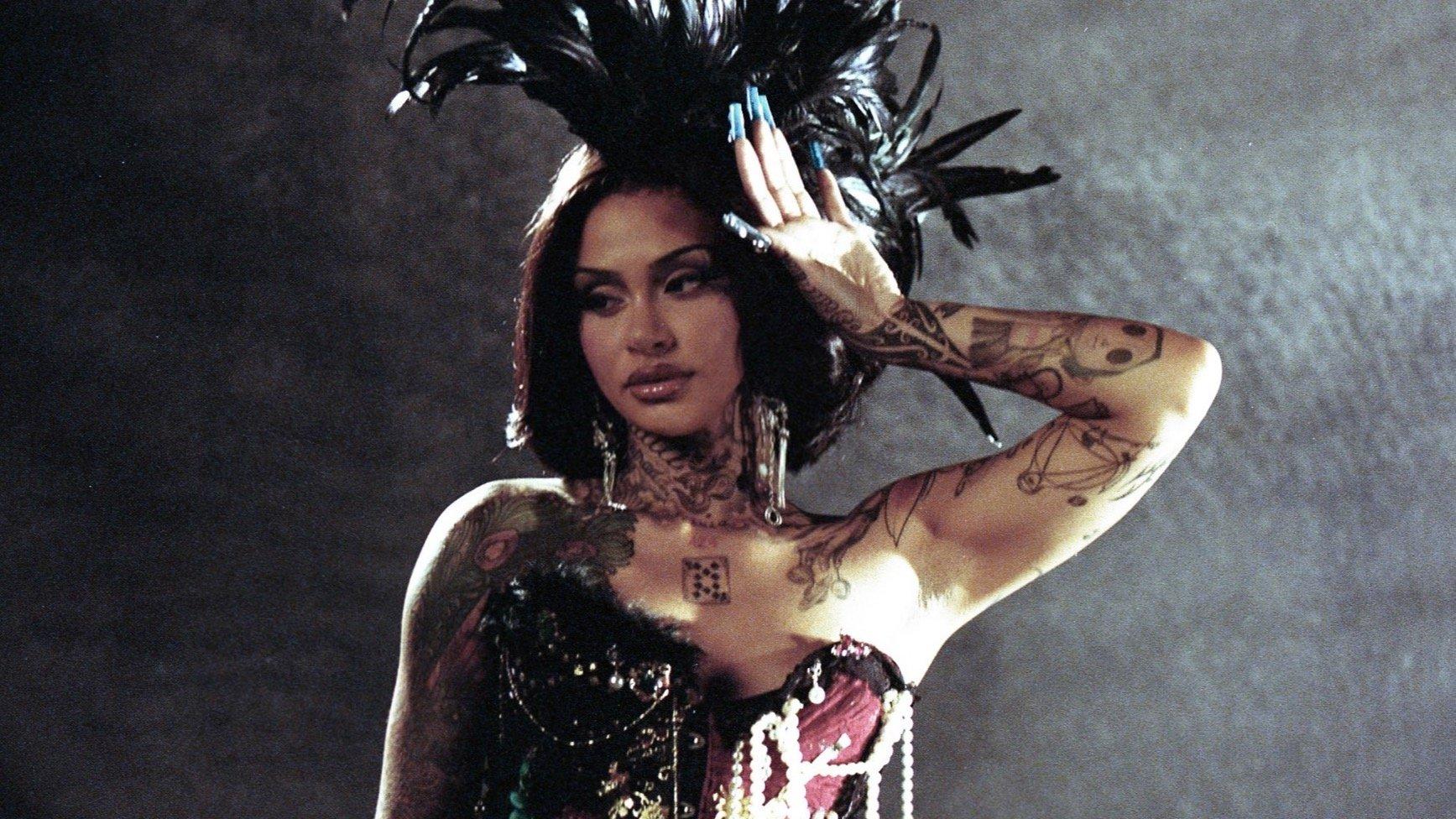
Photo: Mia André
interview
Crashing Into The Present: How Kehlani Learned To Trust Their Instincts And Exist Loudly
"I want this next batch of music to feel like the most fiery parts of me," Kehlani says of her new album, 'Crash.' The singer/songwriter speaks with GRAMMY.com about embracing the moment and making an album she can headbang to.
After finishing the first mixes of their new album, Kehlani knew exactly what she needed to do: head to Las Vegas.
The L.A.-based, Oakland-born singer/songwriter had always identified with Sin City: "I’m full of juxtapositions," she tells GRAMMY.com. "Vegas is this crazy bright light city in the middle of a vacant desert that has weddings and also strippers." Fittingly, Kehlani harbored a very Vegas-like image in their head while creating Crash, a record built on blaring neon, glowing smoke, and the highest highs.
Crash drops June 21, and is Kehlani's fourth solo album. She burst onto the scene in 2009 as a member of teen sextet PopLyfe, but their 2014 debut solo mixtape Cloud 19 announced a far more complex character. Their debut full-length, SweetSexySavage, was released three years later to critical acclaim, with two more albums and a handful of platinum-certified singles following. As if that weren’t enough, Kehlani added acting, appearing in "The L Word: Generation Q" and a cameo in Creed III.
And while Crash embodies the evolution and growth through all those experiences, the record builds a hyper-real language all their own. Beyond any sense of R&B or pop, soul or hip-hop, Crash finds Kehlani chasing passions that refuse to fit in any box, shifting multiple times within a track — refusing to focus on anything but the moment.
"A crash isn't anything from the past. It isn't the anxiety of what's about to happen," she says. "It's the height of the moment. It's right now."
Nearing the release of Crash, Kehlani spoke with GRAMMY.com about finding inspiration from international music, getting their five-year-old to sing on the album, and their need to stage dive.
What’s it like living in Los Angeles after growing up in the Bay Area?
I moved to L.A. when I was about 17. I had already left the house. I left the house at 14, and by the time I was almost 18 it was the appropriate time for me to situate in a new place. L.A. and the Bay are like cousins. Do we have differences? Absolutely, things that are fundamental to us, but when you leave California, you can really see that we're just like a big family.
Had you been dreaming of L.A. as a place where you could pursue art? Were you already set on that goal?
It was the closest place that a young, very broke person could go and work in music. I'm sure there were other places with musical homes, musical cities, but if all I had to do was get on a $15 bus and go find someone to stay with in L.A., I was gonna do it for sure.
That’s the same ambition that I feel drives this new record, which is just so dense and full of surprises. That includes the lovely retro radio intro to "GrooveTheory," where you move from this ‘60s pop feel to the present. That’s such a smart way to foreground your evolution.
I think the second that we made that song and then turned it into ["GrooveTheory"], I was like, This feels like it encompasses where I'm headed, this whole new sound.
Once that radio dials in and it comes in with R&B elements, it's producing where I'm headed, but also remembering that my core hasn't changed. Especially the energy of what I'm saying in the song, like, "I'm kind of crazy," it's introducing this energy difference on this album. I feel like that's the biggest change, and that's what's so prevalent in this whole rollout. Energetically, I'm on a whole different type of time.
You can sense it. 'Crash' feels really rooted in self-expression and personal growth, and when you listen to it as a whole, it really does seem like an evolution story. Beyond just the genre and style, how do you feel the way that you've expressed your true self has shifted over the years?
Thank you! That's been the feedback I've gotten from pretty much everyone who's listened, and I don't know what I expected, but it wasn't this. I have realized the public's understanding of me and the general consensus for so long, and I also realized how multi-faceted I am to people.
People get really confused when I express all the sides of my personality. They’re either, like, "Okay, she makes really sweet love songs," or "We've seen you be political, we've seen you come out, we've seen you be a family member." And then there's a lot of people who are, like, "I feel like she's f—ing crazy. I've seen her in multiple relationships. I've seen her be angry. I've seen her get online and cuss people out."
I want this next batch of music to feel like the most fiery parts of me. I want it to feel like the most present and energetic parts of me. I don't want anything to feel somber. I don't want anything to feel reminiscent. I think a lot of my albums in the past have been me looking back, and sitting in that feeling and detailing it. I just wanted [this album] to feel right here, right now, which is why the title came about. A crash isn't anything from the past. It isn't the anxiety of what's about to happen. It's the height of the moment. It's right now.
That’s unfortunately a story you hear too often about artists of color — that essentialization, where you can only be seen as one thing. R&B often gets hit with those same issues. Throughout your career you’ve stood up to those expectations, and "Better Not" on this album is such a good example of that. It’s a left turn, a stylistic contrast and an open conversation with the listener. You cleverly fuse that intentionality with a voice that’s stronger than ever.
In the past, I have had moments where I would make the song and [start recording], and there would be so many versions of each song on different microphones, recorded in different places.
"Let me try vocal production. Let me try to go back and work with this version again." I went back and did vocal production with Oak Felder, who did all the vocal production on SweetSexySavage. When I come back to some of my favorite vocal production moments, it was moments like "Distraction" or "Advice" or "Escape" — songs on my very first album — and I wanted to get that feeling again. Where it's lush where it needs to be, but also that I really mean what I'm saying.
That started with the approach in the songwriting. Once I had the songs and I had to go back and deliver them, I had enough time to listen and listen, to learn the songs and identify with them. We would make music all day and then go out, and we would be in this sprinter van on the way to going out, and, like, bang, the songs we just made, the energy was just different. It allowed me to be present in a different way where my voice is able to show up like that.
Which again ties perfectly to crashing into the present. As someone from South Africa, I love that the other guests that you included represent different cultural viewpoints. You worked with Young Miko from Puerto Rico, Omah Lay from Nigeria. Having that musical dialogue is so powerful.
We had so many conversations about how America's in the backseat often when it comes to music. We have our moments, and it's fantastic, like Beyoncé’s Cowboy Carter. There's a culture that is super American, that is Black, that historically needs to be dived into. It needs to be shown that we do have something here.
So many people that don't speak Spanish bang Bad Bunny all day. Amapiano’s taking over; Tyla’s going up. It's really not here. So that wasn't a conscious choice. It's just what we've all been listening to, what we've been loving.
Read more: 11 Women Pushing Amapiano To Global Heights: Uncle Waffles, Nkosazana Daughter, & More
Speaking of guests, I wanted to ask about your daughter, whose voice is on "Deep." Was she just in the studio and you got her singing?
So those vocals on that, that’s actually my little sister and my goddaughter. And [my daughter] was in the room and she started singing along. She has perfect pitch; she's always freestyling or singing or making something up.
I was like, "You want to just go sing on it?" What's on there is her first take. Literally. She did it the first time, all the way through, perfectly. I was like, "Well, that's it, guys. I can retire."
That track is so lush. It feels so alive. Were you working with a full band?
[Producer] Jack Rochon, who I did a lot of the music with, he just is a freaking genius music whiz. Honestly, he's one of the most humble people that I know, and deserves credit for how amazing a lot of this album is.
Talking about touchstones, there's a Prince energy to the title track. Did you have any new inspirations or influences for this record?
Thank you! My main focus for this album came from going on tour for my last one and making such a pretty, sweet, intimate album, and then playing some of the biggest venues of my career. At some point I had to rearrange the setlist to add in a lot of the album before that one, because it was just more energy on the stage. By week two of tour, the setlist had completely changed. I knew that I was playing venues on this next tour that I've dreamt about, places that I can't fathom that I'm playing, like Barclays Center.
I do a lot of things for, like, my inner child, and this is such a move for my inner child. Like, You're about to go play Barclays. Do you want to look back and say, ‘I rocked out and played Barclays’? I'm a person who headbangs on stage. I stage dive. I wanted to create an album that would ring through a venue like that. I want people to be engaged again. I'm not looking for the lighters and the somber, holding each other — which will occur regardless, because it's a me show.
But I really wanted people to be in their bodies, and their heart’s exploding and the ground’s shaking. So that's what we accomplished. I wanted to have fun. This album is so fun to me. It’s a place of fire in my heart.
It took me a second to get the word play on "Eight." I loved the track, and then suddenly I was like, 'Oh… I knew there was something raunchy going on here.'
[*Laughs.*] "Eight" was super fun, and shoutout to the boys that I did it with, because they made it everything for me.
I didn't come up with the wordplay. My boys did. Like, "This is how you talk!" I was like, "It is! This is perfect." Once I got in to fix things, add things, add my own spin, and finish writing, my favorite part was that it sounds like a Brandy song. She's my favorite.
I also wanted to ask about the Nina Sky sample on "After Hours."
That was mine. I was like, "What can we flip that when it comes on, my generation loses their mind?" And for me, every single time that Nina Sky comes on in the club, everybody's like "Woo!" And then you see how many songs were made from that same sample, and they're all songs that make us lose our minds.
I went into the room with the producers, and I was like, "So, I want to flip this, but I want you to make it to where it doesn't become one of those where the whole thing is just a sample."
Similarly, "Lose My Wife" balances breeziness with high emotional stakes. Is finding a balance like that just natural for someone so capable of juxtaposition?
The second that we established that [the record] felt like Vegas, I knew what components were missing from the energy of how I feel the second my car crosses the line into the city of Las Vegas. I knew I was missing that feeling of the next morning when you realize you went on this high and you come down. I wanted to create these scenarios that weren't necessarily applicable to me, but captured that emotion. I've been there before, and I want people to be like, Damn, I've been there before. I know this feeling.
I recorded that song at 4 in the morning with a sinus infection. The second that we finished it, everybody was like, "You can never re-sing that. Don't try to make another version, you're not gonna be able to sound like that again." All the chatter in the background of that song is really everybody who was in the studio that stayed up to just hang out. We had the tequila out, it was perfect. That was probably one of my favorite moments of making the album.
It takes a while as an artist to reach a place where you can capture those moments. You said before that people try to figure you out, and I mean this in the best possible way, but it feels like now you don’t care if they can’t figure you out.
I don't give a f—anymore, yeah. And that was a very important thing for me to learn. I used to care so much, and I would spend so much time explaining myself online, in music, in interviews, on stage. I realized that you're damned if you do, damned if you don't.
I've been so forward-facing with my heart my entire career that I've left a lot of room for people to consistently pedestal me and then critique me, for people to want to tear me down. I realized I'm just being present, here, existing loudly in front of a billion people, and whichever way that goes is how the cookies gonna crumble. Me giving a f—? I'm the only one it's affecting at this point, for sure.
Angélica Garcia's Intuition: How 'Gemelo' Was Born By Embracing L.A., Ancestry & Spanish Language
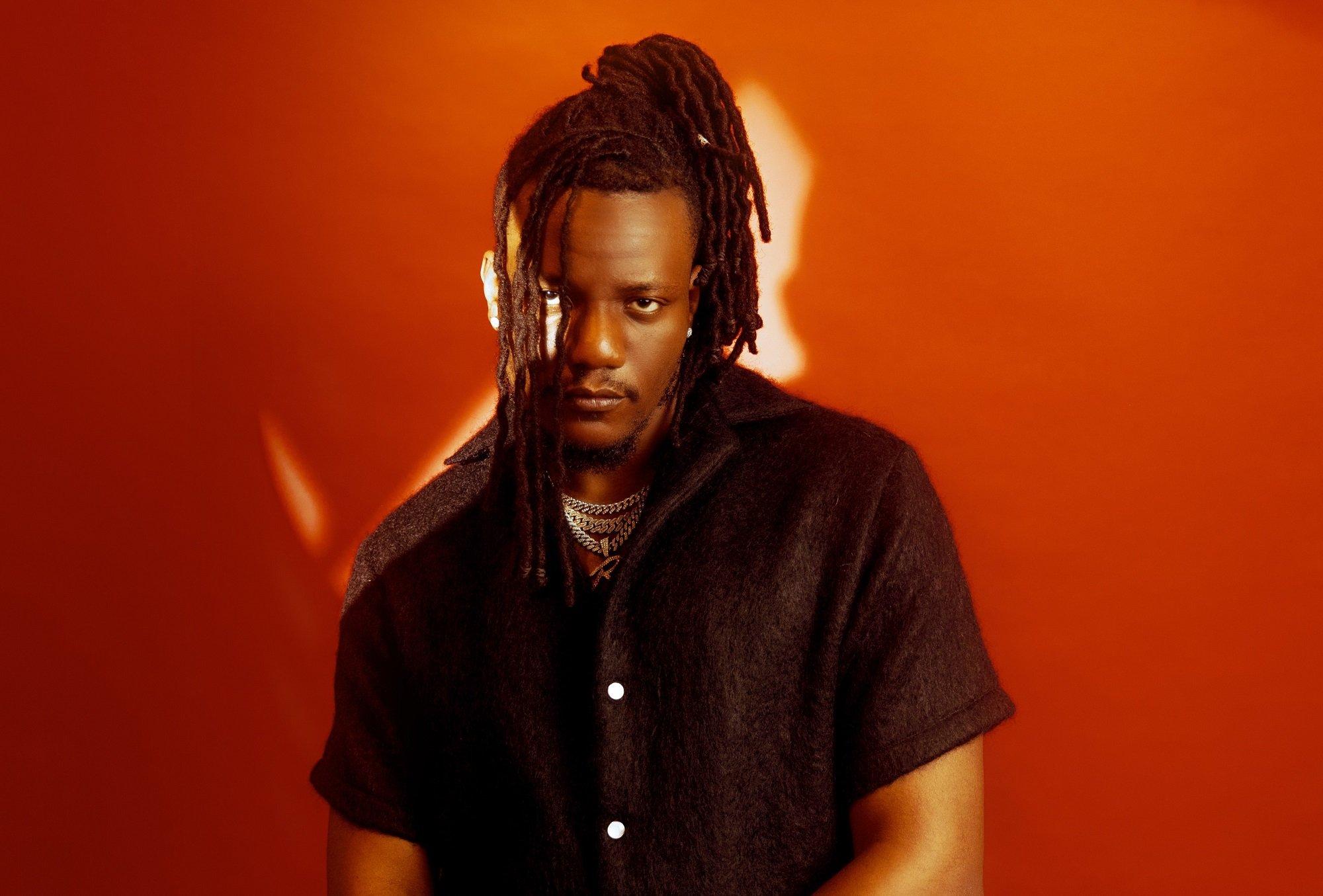
Photo: Williams Peters
interview
Meet Usher Collaborator Pheelz, The Nigerian Producer & Singer Who Wants You To 'Pheelz Good'
After working with Usher on two tracks for his latest album, 'Coming Home,' Lagos' Pheelz is looking inward. His new EP, 'Pheelz Good II' drops May 10 and promises to be an embrace of the artist's unabashed self.
If you were online during the summer of 2022, chances are you’ve heard Pheelz’s viral hit single "Finesse." The swanky Afro-fusion track (featuring fellow Nigerian artist Bnxn) ushered in a world of crossover success for Pheelz, who began his career as a producer for the likes of Omah Lay, Davido, and Fireboy DML.
Born Phillip Kayode Moses, Pheelz’s religious upbringing in Lagos state contributed to his development as a musician. He manned the choir at his father’s church while actively working on his solo music. Those solo efforts garnered praise from his peers and music executives, culminating in Pheelz's debut EP in 2021. Hear Me Out saw Pheelz fully embrace his talent as a vocalist, songwriter, and producer.
"I feel important, like I’m just molding clay, and I have control over each decision," Pheelz tells GRAMMY.com about creating his own music.
2022 saw the release of the first two tapes in his Pheelz Good trilogy: Pheelz Good I and Pheelz Good (Triibe Tape), which was almost entirely self-produced. The 29-year-old's consistency has paid off: he produced and sang on Usher’s "Ruin," the lead single from his latest album Coming Home, and also produced the album's title track featuring Burna Boy. But Pheelz isn't only about racking up big-name collaborators; the self-proclaimed African rockstar's forthcoming projects will center on profound vulnerability and interpersonal honesty. First up: Pheelz Good II EP, out May 10, followed by a studio album in late summer.
Both releases will see the multi-hyphenate "being unapologetically myself," Pheelz tells GRAMMY.com. "It will also be me being as vulnerable as I can be. And it’s going to be me embracing my "crayge" [crazy rage]...being myself, and allowing my people to gravitate towards me."
Ahead of his new project, Pheelz spoke with GRAMMY.com about his transition from producer artist, designing all his own 3D cover art, his rockstar aesthetic, and what listeners can expect from Pheelz Good II.
This interview has been edited for clarity.
What sparked your transition from singing in church to realizing your passion for creating music?
For me, it wasn’t really a transition. I just always loved making music so for me I felt like it was just wherever I go to make music, that’s where I wanna be. I would be in church and I was the choirmaster at some point in my life, so I would write songs for Sunday service as well. And then I would go to school as well and write in school, and people heard me and they would love it. And I would want to do more of that as well.
A friend of my dad played some of my records for the biggest producers in Nigeria back then and took me on as an intern in his studio. I guess that’s the transition from church music into the industry. My brothers and sisters were in the choir, but that came with the job of being the children of the pastor, I guess. None of them really did music like me; I’m the only one who took music as a career and pursued it.
You made a name for yourself as a producer before ever releasing your music, earning Producer Of The Year at Nigeria’s Headies Awards numerous times. What finally pushed you to get into the booth?
I’ve always wanted to get into the booth. The reason why I actually started producing was to produce beats for songs that I had written. I’ve always been in the booth, but always had something holding me back. Like a kind of subconscious feeling over what my childhood has been. I wasn’t really outspoken as a child growing up, so I wouldn’t want people to really hear me and would shy away from the camera in a sense. I think that stuck with me and held me back.
But then COVID happened and then I caught COVID and I’m like Oh my god and like that [snaps fingers] What I am doing? Why am I not going full steam? Like why do I have all this amazing awesomeness inside of me and no one gets to it because I’m scared of this or that?
There was this phrase that kept ringing in my head: You have to die empty. You can’t leave this earth with all of this gift that God has given you; you have to make sure you empty yourself. And since then, it’s just been back-to-back, which just gave me the courage.
How did you react to " Finesse" in former President Barack Obama’s annual summer playlist in 2022?
Bro, I reacted crazy but my dad went bananas. [Laughs.] I was really grateful for that moment, but just watching my dad react like that to that experience was the highlight of that moment for me. He's such a fan of Barack Obama and to see that his son’s music is on the playlist, it just made his whole month. Literally. He still talks about it to this day.
Experiences like that just make me feel very grateful to be here. Life has really been a movie, just watching a movie and just watching God work and being grateful for everything.
At first he [my dad] [didn’t support my career] because every parent wants their child to be a doctor, a lawyer, or an engineer. But when he saw the hunger [I have], and I was stubborn with [wanting] to do music, he just had to let me do it. And now he’s my number one fan.
Your latest single, "Go Low" arrived just in time for festival season. What was it like exploring the live elements of your art at SXSW and your headlining show in London at the end of April?
I have always wanted to perform live. I’ve always loved performing; Pheelz on stage is the best Pheelz. Coming from church every Sunday, I would perform, lead prayers and worship, so I’ve always wanted to experience that again.
Having to perform live with my band around the world is incredible man. And I’ll forever raise the flag of amazing Afro live music because there’s a difference, you know? [Laughs.] There are so many elements and so many rhythms and so many grooves
I’ve noticed that much of your recent cover art for your singles and EPs is animated or digitally crafted. What’s the significance, if any, of this stylistic choice?
It still goes back to my childhood because I wasn’t expressive as a child; I wouldn’t really talk or say how I felt. I’d rather write about it, write a song about it, write a poem about it, or draw about it. I’d draw this mask and then put how I’m feeling into that character, so if I was angry, the mask would be raging and just angry.
The angry ones were the best ones, so that stuck with me even after I started coming out of my shell and talking and being expressive; that act of drawing a mask still stuck with me. And then I got into 3D, and I made a 3D version of the mask and I made a 3D character of the mask. So I made that the main character, and then I just started making my lyric videos, again post-COVID, and making them [lyric videos] to the characters and making the actual video mine as well.
In the future, I’m gonna get into fashion with the characters, I’m gonna get into animation and cartoons and video games, but I just wanna take it one step at a time with the music first. So, in all of my lyric videos, you get to experience the characters. There’s a fight [scene] among them in one of the lyric videos called "Ewele"; there is the lover boy in the lyric video for "Stand by You"; there are the bad boys in the lyric video for "Balling." They all have their own different characters so hopefully in the near future, I will get to make a feature film with them and just tell their story [and] build a world with them. I make sure I put extra energy into that, make most of them myself so the imprint of my energy is gonna be on it as well because it’s very important to me.
You and Usher have a lengthy working relationship. You first performed together in 2022 at the Global Citizen Festival, then produced/co-wrote "Coming Home" and "Ruin." Take us through the journey of how you two began collaborating.
It started through a meeting with [Epic Records CEO] L.A. Reid; he was telling me about the album that they were working on for Usher and I’m like, "Get me into the studio and lemme see what I can cook up." And they got me into the studio, [with Warner Records A&R] Marc Byers, and I wrote and produced "Coming Home." I already had "Ruin" a year before that.
["Ruin"] was inspired by a breakup I just went through. Some of the greatest art comes from pain, I guess. That record was gonna be for my album but after I came home I saw how L.A. Reid and Usher reacted and how they loved it. I told them, "I have this other song, and I think you guys would like it for this album." And I played "Ruin," and the rest was history.
Before your upcoming EP, you’ve worked with Pharrell Williams, Kail Uchis, and the Chainsmokers in the studio. What do you consider when selecting potential collaborators?
To be honest, I did not look for these collabs. It was like life just brought them my way, because for me I’m open to any experience. I’m open to life; I do it the best I can at any moment, you understand?
Having worked with Pharrell now, Dr. Dre, Timbaland, and the Chainsmokers, I’m still shocked at the fact that this is happening. But ultimately, I am grateful for the fact that this is happening. I am proud of myself as well for how far I’ve come. Someone like Timbaland — they are literally the reason why I started producing music; I would literally copy their beats, and try to sound like them growing up.
[Now] I have them in the same room talking, and we’re teaching and learning, making music and feeding off of each others’ energy. It’s a dream come true, literally.
What's it like working with am electro-pop group like the Chainsmokers? How’d you keep your musical authenticity on "PTSD"?
That experiment ["PTSD"] was actually something I would play with back home. But the crazy thing is, it’s gonna be on the album now, not the EP. I would play it back home, like just trying to get the EDM and Afrohouse world to connect, cause I get in my Albert Einstein bag sometimes and just try and experiment. So when I met the Chainsmokers and like. "Okay, this is an opportunity to actually do it now," and we had a very lengthy conversation.
We bonded first as friends before we went into the studio. We had an amazing conversation talking about music, [them] talking about pop and electronic music, and me talking about African music. So it was just a bunch of producers geeking out on what they love to do. And then we just talk through how we think the sound would be like really technical terms. Then we get into the studio and just bang it out. Hopefully, we get to make some more music because I think we can create something for the world together.
I’ve noticed you dress a bit eccentrically. Have you always had this aesthetic?
I’ve always dabbled in fashion. Even growing up, I would sketch for my sister and make this little clothing, so like I would kick up my uniform as well, make it baggy, make it flare pants, make it fly.
I think that stuck with me until now, trying different things with fashion. And now I have like stylists I can talk to and throw ideas off of and create something together. So yeah, I want to get into the fashion space and see what the world has in store for me.
What can fans expect as you’re putting the finishing touches on your upcoming EP Pheelz Good II and your album?
Pheelz Good II, [will be] a close to the Pheelz Good trilogy of Pheelz Good I, Pheelz Good Triibe Tape and Pheelz Good II. The album is going to be me being unapologetically myself still. But it will also be me being as vulnerable as I can be.
It’s going to be me embracing my crayge [crazy rage]. Like just embracing me unapologetically and being me, being myself, and allowing my people to gravitate towards me, you get me. But I’m working on some really amazing music that I am so proud of. I’m so proud of the EP and the album.
Mr. Eazi’s Gallery: How The Afrobeats Star Brought His Long-Awaited Album To Life With African Art
